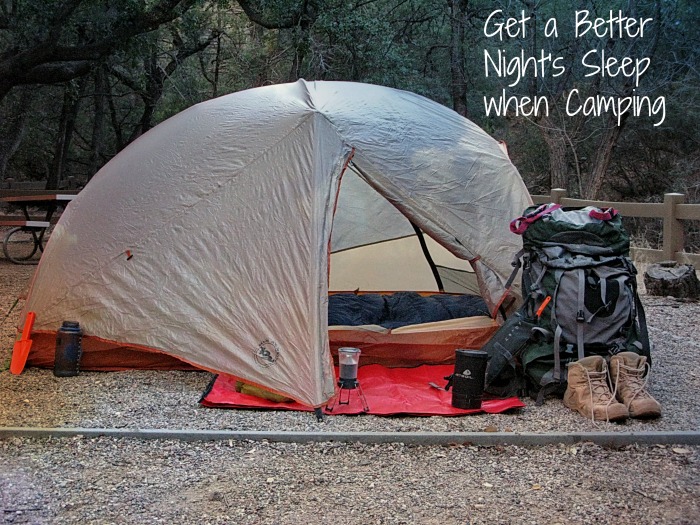If there’s ever an activity that has been a hate-it-or-love-it proposition, it is camping. You have your one camp (pun intended) that loves the outdoors, and all the dirt, grit, and earthiness that comes with it. On the other side, there’s the group of people who can’t stand anything besides room service and plush, king-sized beds when away from home. But even among the greatest divides, there are the handful of people on the fence – like me! And when it comes to camping, the biggest force that often pushes somebody to one side or the other is the sleep they get. After all, there’s not much you can enjoy if you tossed, turned, and shivered your way to a whopping 18 minutes of sleep. You can sleep better when camping, though!
How to Sleep Better when Camping
The key to this, as experienced campers know, is the right sleep surface. Many first-timers who wind up hating camping only use a sleeping bag that feels great during its test run on the high-pile carpet of a 74-degree living room. But when tossed on a hard, uneven, heat-draining ground, that sleeping bag isn’t much better than a few garbage bags placed beneath you.
The benefit of a camping pad is two-fold, regardless of your experience or preferences when camping. Obviously, a camping pad will soften the ground, getting you a little closer to the mattress you’re used to at home, smoothing out the sticks and stones and reducing pressure-point issues. But the other factor many people don’t realize is the insulating ability camp pads offer. Foam is a poor conductor of heat, and as such, the ground’s ability to drain heat from your body is greatly reduced. Not only is getting cold uncomfortable and prohibitive to sleep, in certain situations, it’s downright dangerous.
Whether using space-saving closed-cell foam, or softer, warmer open-cell foam, camp pads can help even the pickiest sleepers enjoy the experience and sleep better when camping!
photo credit: Al_HikesAZ via cc

